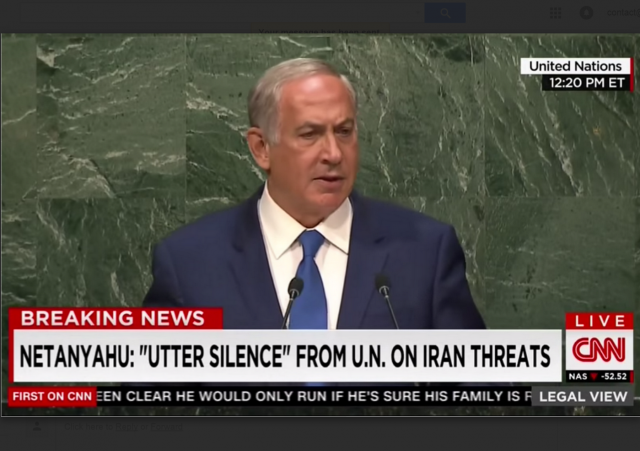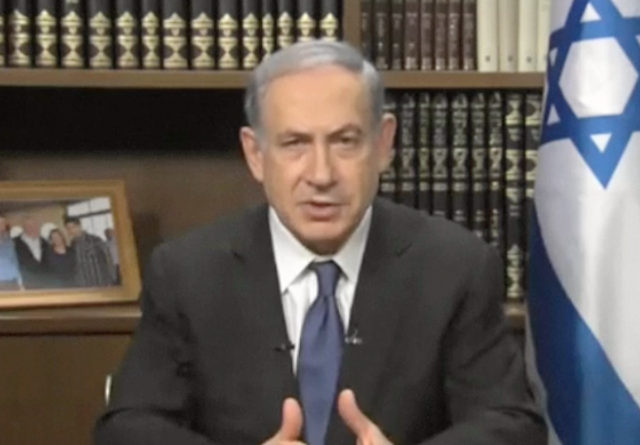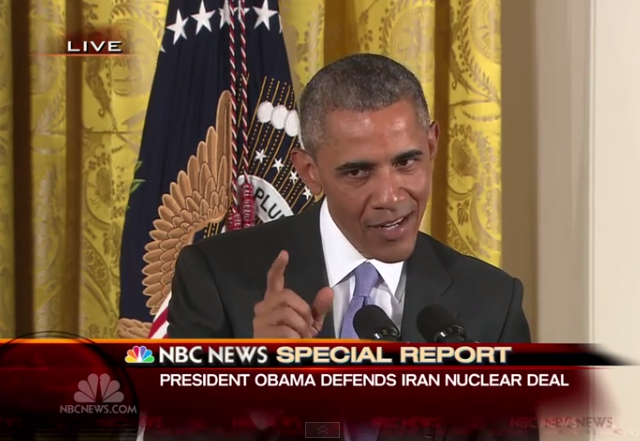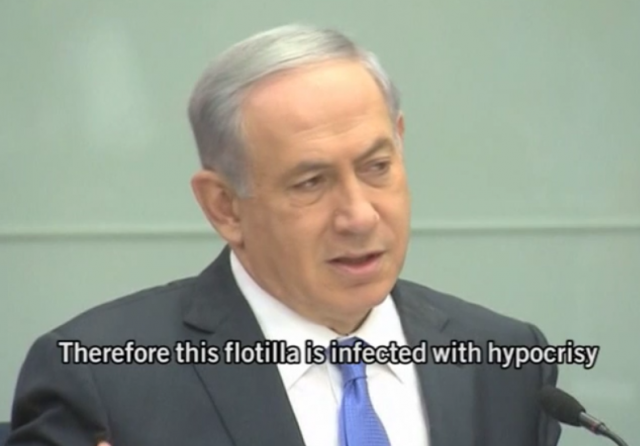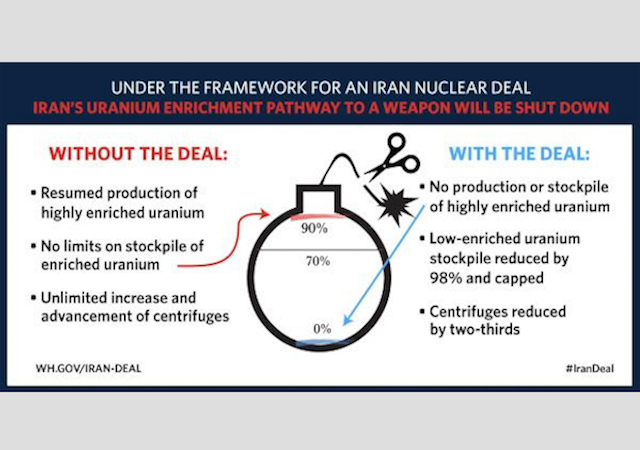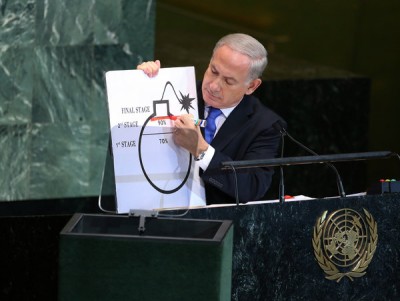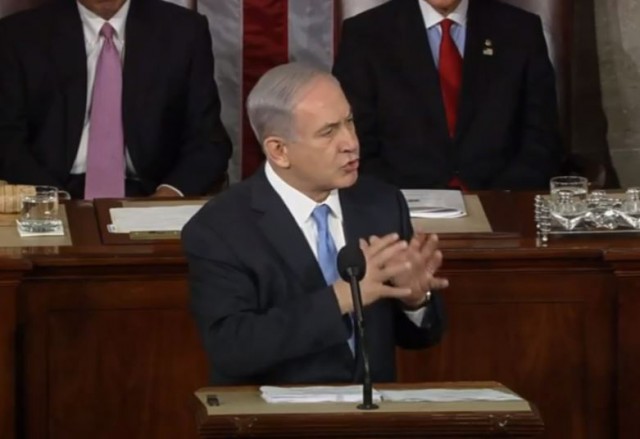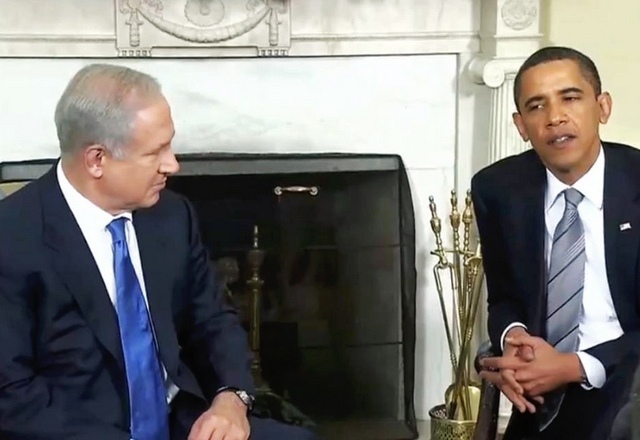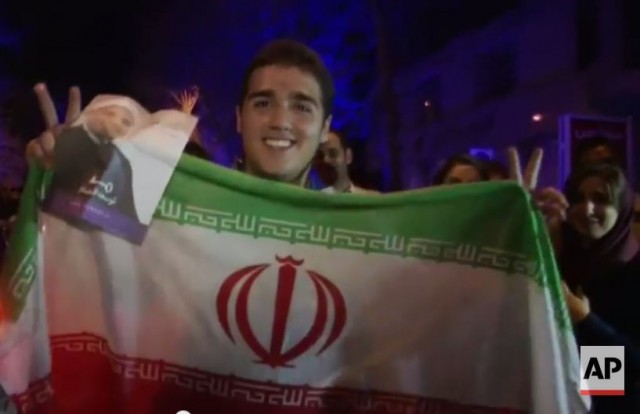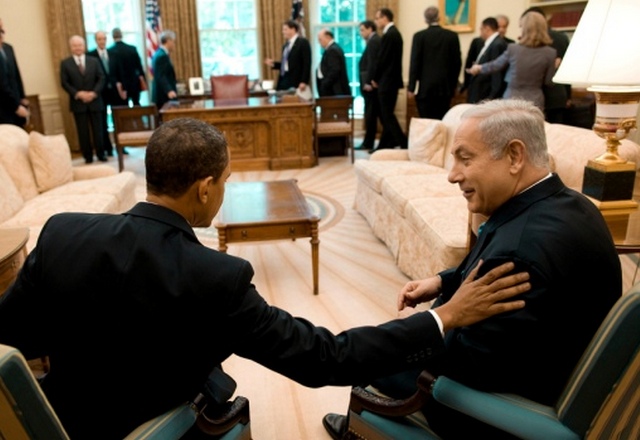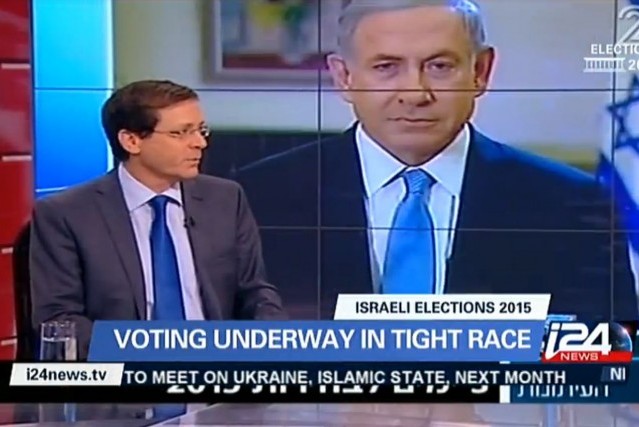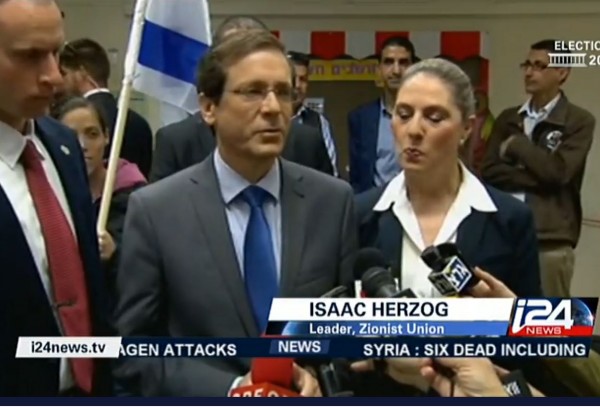Netanyahu shames U.N. for “deafening silence” over Iran threats to destroy Israel
on October 01, 2015
20 Comments
Israeli Prime Minister Benjamin Netanyahu spoke before the U.N. General Assembly today.
It was a powerful speech -- one of, if not his best. The full speech is at the bottom of the post. The full text is here.
Here are some highlights.
Too bad neither John Kerry nor Amb. Samantha Power were present to hear it, and as a show of solidarity.
Netanyahu had a powerful 45 seconds of silence shaming the U.N. for its silence on Iran's threats to destroy Israel.
In the face of repeated Iranian threats and U.N. anti-Israel resolutions, Netanyahu declared "Israel will do whatever it must do to defend our state and to defend our people."

